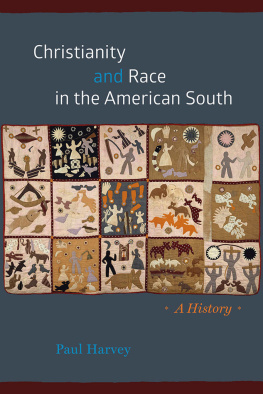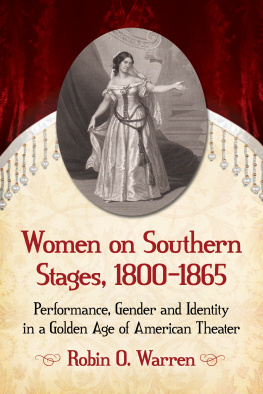
Growing Up Gay in the South
Race, Gender, and Journeys of the Spirit
A WONDERFUL BOOK. From one point of view, it is a stirring and, for me, disarming and revelatory look into the anguish that so many young gay people undergo in this society. This alone would make the book important. But, from another point of view, it is a wonderful portrayal of the way all kids grow upthe cliques that form, the sense of pecking order, the fear of being spurned, excluded by the kinds who form the in group in junior high or high school; and this, I think has relevance to almost anyone. So, in this sense, it is a book about conformity and independence on a larger scale than sexuality. It is a critically essential novel about gay youth. But it is also an important portrait of the coming-of-age of all young people in this country. The secret anguish of adolescence has rarely been more meaningfully portrayed.
Jonathan Kozol, Educator and Award Winning Author of Death at an Early Age (National Book Award Winner), Illiterate America, and Rachel and Her Children
An important contribution to American letters, both as theory and a documentation. I particularly appreciate the wide range of scholarship here as well as the lucidity. The case studies fascinate as do the commentaries, especially the last chapter. A MAJOR ACHIEVEMENT.
Louie Crew, PhD, Rutgers University; Founder of Integrity;
Author of The Gay Academic
Sears has not tried to impose one mold upon the youths he interviewed, but he has allowed them to speak for themselves: female and male, black and white, belle and redneckall the wondrous diversity that perhaps someday the South will learn to appreciate and value. Growing Up Gay in the South should go a long way to overcome educators silence. PROVIDES MUCH INSIGHT into an understanding of the South in general, not limited to sexual issues.
Walter Williams, Professor of Anthropology, University of Southern California at Los Angeles; Author of The Spirit and the Flesh: Sexual Diversity in American Indian Culture
SETS A NEW STANDARD for gay/lesbian sociology. The synthesis of cultural, regional, and institutional contexts with the narratives of young lesbian and gay South Carolinians creates a richer signification than the narratives alone would carry. Each narrative taps into the experience of countless others; and, while never losing its individual subjectivity, it reads simultaneously as a paradigm. As a result, a regional and generational cross-section of childhood and adolescence is brought palpitatingly alivejoys, confusions, lonelinesses, friendships, and the excitements of sexual awakenings and self-affirmations.
Donald N. Mager, Co-Chair, Gay and Lesbian Caucus for the Modern Languages (GLCML); Assistant Professor, Johnson C. Smith University, Charlotte, North Carolina
Growing Up Gay in the South
Race, Gender, and Journeys of the Spirit
James T. Sears, PhD
Growing Up Gay in the South: Race, Gender, and Journeys of the Spirit is Volume Number 4 in the Haworth Series in Gay & Lesbian Studies.
First published 1991 by Routledge
Published 2013 by Routledge
2 Park Square, Milton Park, Abingdon, Oxon OX14 4RN
711 Third Avenue, New York, NY, 10017, USA
Routledge is an imprint of the Taylor & Francis Group, an informa business
1991 by Gay and Lesbian Advocacy Research Project. All rights reserved. No part of this book may be reproduced or utilized in any form or by any means, electronic or mechanical, including photocopying, microfilm and recording, or by any information storage and retrieval system, without permission in writing from the publisher.
Library of Congress Cataloging-in-Publication Data
Scars, James T. (James Thomas), 1951-
Growing up gay in the South : race, gender, and journeys of the spirit / James T. Scars.
p. cm.(Haworth series in gay & lesbian studies ; v. no. 4)
Includes bibliographical references (p. ) and index.
1. Gay teenagersSouthern States. 2. HomosexualitySouthern StatesCase studies. 3. HomosexualityReligious aspectsChristianity. I. Title. II. Series.
HQ76.3.U5S43 1990
305.90664dc20
90-4973
CIP
ISBN 13: 978-0-866-56911-8 (hbk)
ISBN 13: 978-0-918-39379-1 (pbk)
The 36 Sexual Rebels
Alston | Jackson |
Audrey | Jacob |
Brandon | Kevin |
Brett | Kimberly |
Carlton | Lenora |
Cory | Lizabeth |
Darla | Malcolm |
Drew | Marian |
Elisa | Nathaniel |
Everetta | Norma Jean |
Fawn | Obie |
Franklin | Olivia |
Georgina | Phillip |
Grant | Royce |
Henry III | Steve |
Heyward | Terry |
Irwin | Vince |
Isaiah | William |
CONTENTS
Virginia Uribe, PhD
Jonathan Kozol
Walter L. Williams, PhD
VANTAGE POINT ONE
Homosexuality and the Religious South
VANTAGE POINT TWO
Homosexuality and Southern Communities
VANTAGE POINT THREE
Homosexuality and Southern Families
VANTAGE POINT FOUR
Gender and Sexuality: Being and Behaving Queer in the South
VANTAGE POINT FIVE
Sexuality and Adolescence: Peers, Queers, and Tears
For many lesbian and gay adolescents, high school is a lonely and often frightening place. Ridicule from teachers, violent harassment from fellow students, and other discriminatory school practices interfere with the ability of gay students to learn.
In 1984, while working on my doctoral dissertation in psychology, I surveyed ten of the largest school districts in the United States to determine the degree and nature of services provided for lesbian and gay youngsters, who make up a sizeable and well-defined minority of the adolescent population. Samples in the literature and testimonies from teenagers and advocacy groups indicated that services were, for the most part, non-existent. In order to confirm this, I sent a questionnaire to the head of guidance and counseling in each of the districts. This was followed by a telephone interview. Except for New York Citys Harvey Milk School, an alternative school operated in connection with the Institute for the Protection of Gay and Lesbian Youth, services were entirely absent. Additionally the survey revealed a pattern of homophobia in the education system that systematically damages gay and lesbian teenagers, and takes the form of verbal and physical abuse, failure to discipline the abusers, and the perpetuation of a belief system which suggests that homosexuals are in every way morally inferior to heterosexuals. Generally, adolescent homosexuals were treated as invisible or as objects of hate and bigotry in the school.





